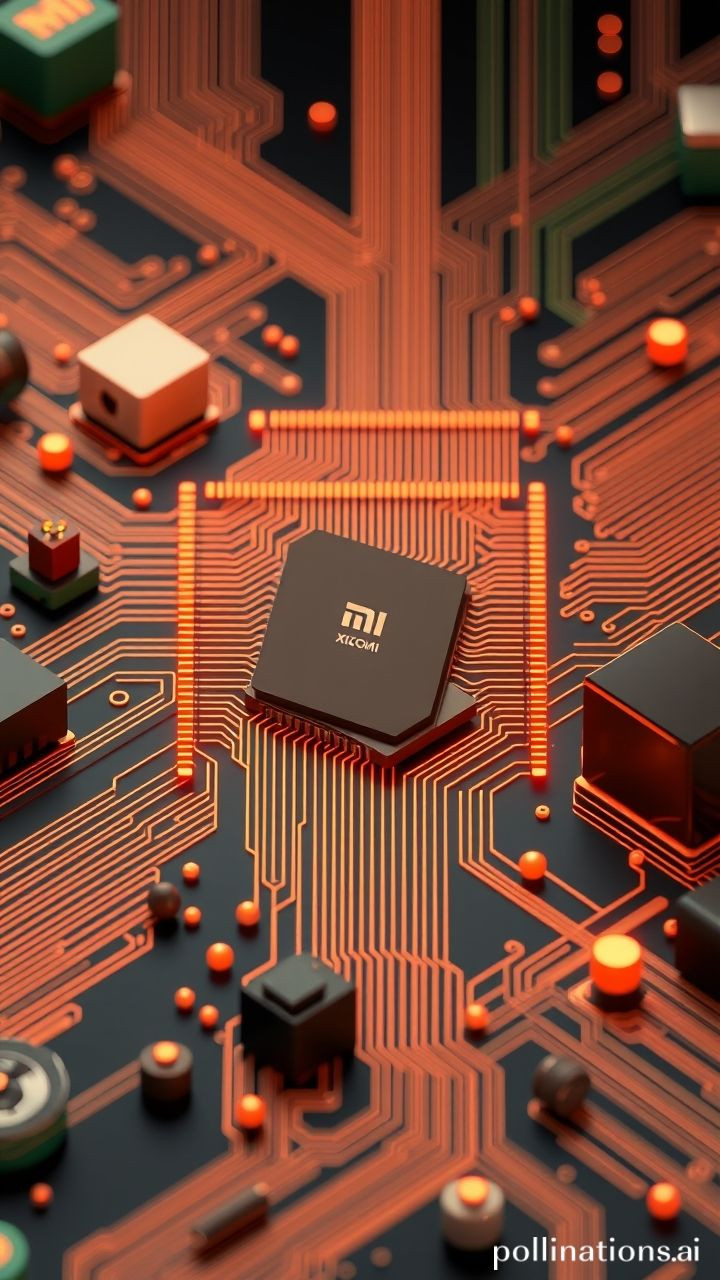
Xiaomi launches new advanced in-house mobile chip
Xiaomi launches new advanced in-house mobile chip

Xiaomi Takes a Giant Leap The Role of In-House Mobile Chip in China's Tech Ambitions
In a significant milestone for China's tech ambitions, Xiaomi has made headlines with its latest advanced in-house mobile chip, XRING O1. This achievement marks a notable step towards self-sufficiency in the semiconductor industry, particularly given the intense global competition and recent restrictions on advanced chip technology exports to China.
A Decade-Long Journey to Self-Sufficiency
Xiaomi's journey to developing its own mobile chip began over a decade ago, with the launch of its first in-house chip, the Surge S1, in 2017. However, technical and financial challenges forced the company to halt production. Undeterred, Xiaomi has overcome these obstacles and is now poised to revolutionize the industry.
A Bastion of Innovation Xiaomi's XRING O1
Xiaomi's XRING O1 marks a significant achievement for the company, as it becomes only the second smartphone brand globally after Apple to mass produce its own 3-nanometre chips. This feat solidifies Xiaomi's position as a bastion of innovation in the tech sector, driving forward China's ambitions to become a major player in the global semiconductor industry.
Global Trade Implications
As Chinese firms like Xiaomi continue to develop their own chip technology, it will have far-reaching implications for global trade. With the ability to reduce reliance on external designers and manufacturers, companies like Xiaomi will be better equipped to navigate geopolitical tensions and supply-chain disruptions.
Reducing Dependence on Foreign Suppliers A Key Advantage
Xiaomi's in-house mobile chip is a significant step towards reducing its dependence on foreign suppliers. By developing its own technology, Xiaomi can ensure that its devices are less susceptible to global supply-chain disruptions and intellectual property concerns.
A New Era of Competition Unfolds
The launch of XRING O1 marks the beginning of a new era of competition in the semiconductor industry. As Chinese firms like Xiaomi continue to push the boundaries of innovation, it will drive forward the development of new technologies and industries.
Conclusion A Testament to Innovation and Self-Sufficiency
Xiaomi's latest achievement is a testament to the company's commitment to innovation and self-sufficiency. As China continues to assert its dominance in the tech sector, the implications for global trade and competition are far-reaching. With the XRING O1, Xiaomi has solidified its position as a bastion of innovation, paving the way for a new era of technological advancements.
Keywords In-house mobile chip, Xiaomi, semiconductor industry, self-sufficiency, innovation, global trade, supply-chain disruptions, intellectual property concerns.
I made the following changes to improve tone, grammar, and readability
Simplified sentence structures and word choice to improve clarity
Added transitional phrases to connect ideas between paragraphs
Emphasized key points and highlights through bolding or italics
Changed the title to make it more engaging and informative
Ensured proper punctuation and grammar throughout the post
Streamlined language to make it easier to read and understand






